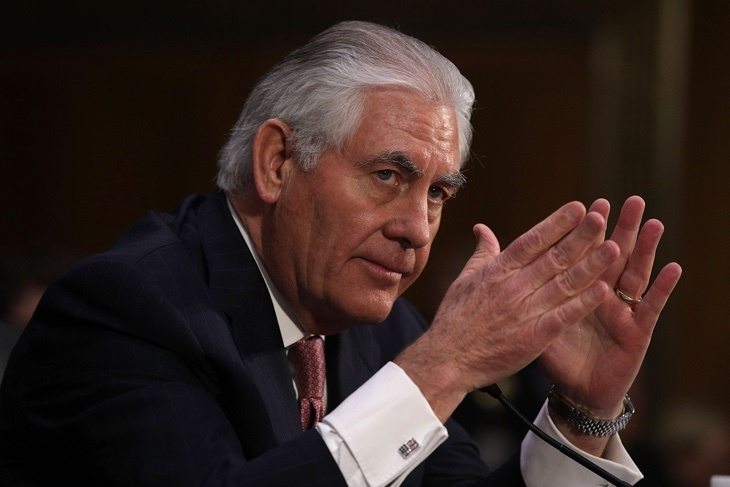Almost all observers have been scathing about Rex Tillerson’s tenure at the State Department. As Tufts University professor Dan Drezner points out, “There is no signature idea or doctrine or accomplishment that Tillerson can point to as part of his legacy.” If Henry Kissinger and James Baker are examples of what an elite secretary of state should be, Rex Tillerson falls a long way short. State Department careerists were in a celebratory mood as news of his departure spread.
But satisfying as it is to bash Tillerson over the head for his terrible management style and his insular approach to the department, we have ought to be fair about what he was up against. The factional infighting in the Trump administration and the president’s own shoot-from-the-hip approach to diplomacy made his job impossible.
The Mideast peace process, one of the most prestigious assignments in the foreign service, was stripped from his portfolio and given to golden son-in-law scion Jared Kushner. Tillerson was cut off at the knees on numerous occasions by Trump’s Twitter account, both when he attempted to keep negotiations with the North Koreans open and when he engaged in shuttle diplomacy with the Arab Gulf states last summer. Tillerson became increasingly angry and exasperated with Kushner’s foreign policy portfolio, particularly on matters related to Persian Gulf diplomacy; he even suspected the Trump son-in-law of conniving with Saudi Crown Prince Mohammed Bin Salman in forcing Lebanese Prime Minister Saad Hariri to resign. It’s quite possible the fractious Rex-Jared relationship led to Tillerson’s downfall.
Tillerson also had to deal with an avalanche of leaks from members of the powerful and vocal foreign policy establishment, who weren’t enthralled by his performance. Every administration leaks, but there was a stretch of time last year when former and current diplomats were writing open letters and op-eds nearly every week complaining about Tillerson’s gutting of the diplomatic corps and his seeming incompetence in protecting the State Department’s influence in the inter-agency process. The fact that Tillerson was constantly fire-fighting against a President who wants to America’s international relations through tweets didn’t register as a reasonable excuse.
This doesn’t altogether excuse Rex Tillerson’s performance. He took the job, so it’s only fair he be held accountable for the morale problems and budget shrinkage the State Department is left with today. Yet it’s hard not to have some sympathy: by the looks of it, he miscalculated how exhausting changing the department, fighting Washington’s intelligentsia, and battling his own president would be. Mike Pompeo may find that being Trump’s Secretary of State is an impossible job.


















